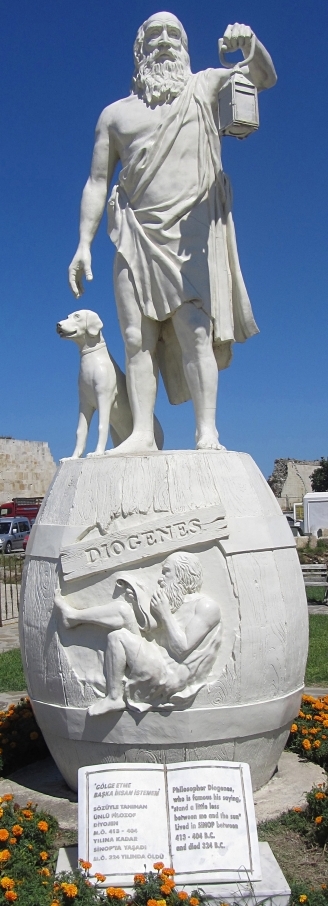

This justification is attested in the exhortations to suicide formulated by the Cynics and in the accounts of the self-inflicted deaths of Metrocles, Heracles, Demonax and Peregrinus.

Therefore, as soon as he loses the capacity to practise the Cynic askesis because of the physical limitations brought on by old age or illness, the philosopher does not hesitate commit suicide. Though most accounts agree that he lived to be quite old some suggesting he lived until ninety the tales of Diogenes’ death are no less multiple than those of his life. He was banished, or fled from, Sinope over debasement of currency. He was born in Sinope, an Ionian colony on the Black Sea coast of Anatolia in 412 or 404 BC and died at Corinth in 323 BC. To reach and maintain his ideal of freedom, the Cynic must submit his body to a training that requires some physical strength. Diogenes, also known as Diogenes the Cynic or Diogenes of Sinope, was a Greek philosopher and one of the founders of Cynicism. Suicide is only justified when the philosopher’s body suffers from extreme and lasting weakness. Several fragments and testimonies show that the Cynics consider life and death indifferent: what matters above all is to lead a good life. Born in 1891 in Providence, Rhode Island, George Boas also taught for many years at Johns Hopkins, and was editor of the Journal of. Being the founder of Cynic school of philosophy, he was probably the most outstanding representative of it. This study aims to identify the Cynic foundation of Diogenes’ suicide by reconstructing the Cynic outlook on voluntary death. Diogenes of Sinope was a Greek philosopher. The heirs of Diogenes have transmitted to posterity that of suicide by self-asphyxiation, a death they deem worthy of his philosophy. The death of Diogenes and the philosophies which he left. Several versions of Diogenes of Sinope’s death are reported in Book VI of the Lives and Opinions of Eminent Philosophers. According to tradition, Diogenes died at Corinth on the same day as Alexander the Great (323 B.C.).


 0 kommentar(er)
0 kommentar(er)
